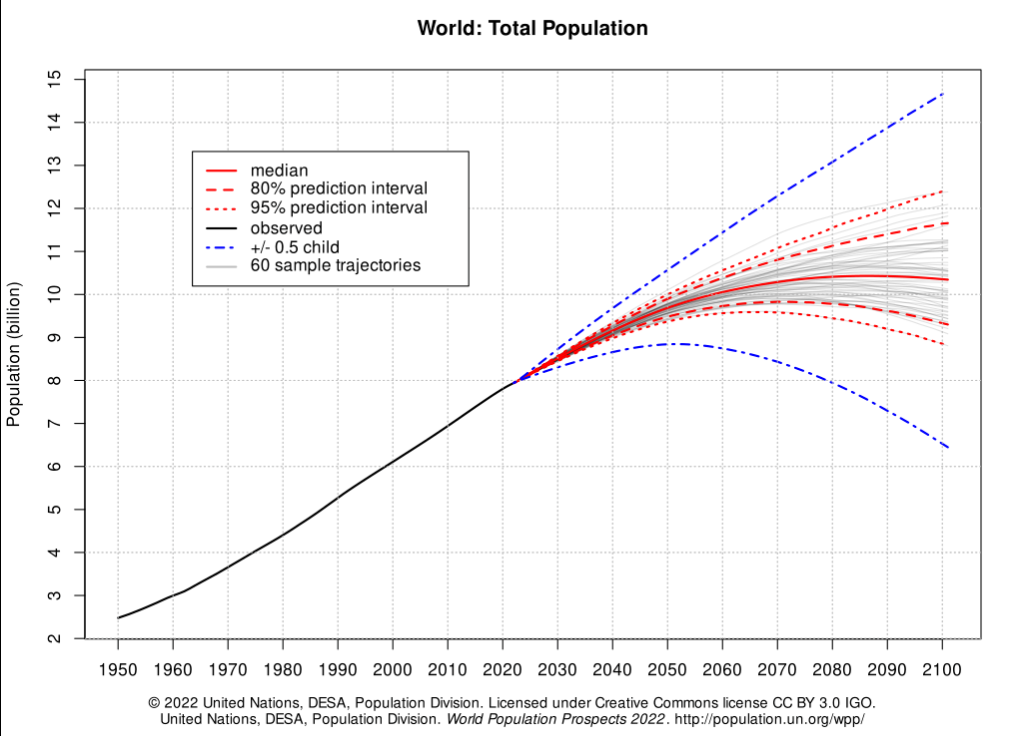Every minute, about 280 people are born globally. By the time I’m done with this speech, about 1,900 babies would be born, which is roughly the size of Palatine High School’s entire student body. This brings us to the question:
How many people can Earth truly support?
As a member of Model United Nations, an organization that is directly monitored by the United Nations, I’ve spent hours discussing the impacts of overpopulation — environmental degradation, increase in poverty and inequalities that affect women.
I was awarded as the best delegate representing my home country, Nigeria, facing this very issue. The times we spent debating really showed me how pressing and complex this issue is.
Nigeria’s population is projected to double in the next 25 years from about 230 million to 460 million. With a country 10 times smaller than the United States, many families are living in overcrowded slums, where they struggle to gain access to clean water and affordable food. A country where young people face a future filled with uncertainties, even questioning when they will have their next meal.
Today, we’re going to be looking at the problem faced by the overpopulation and more importantly, how you can be part of the solution.
To begin with, a survey of the class showed that about 95% of you were unfamiliar with the effects population changes have directly in your life. But according to the United Nations, with the rise in overpopulation comes an increase in the consumption of resources, resulting in an even greater greenhouse gas emission. More people require more food, water, energy and other resources for survival.
What does this mean for us!
Higher food prices. Higher gas prices! Higher electricity bills. You can ask yourself why this is happening as you are becoming an adult.
Additionally, according to the International Monetary Funds,or IMF, an organization that works to achieve sustainable growth and reduce poverty, it took 50,000 years for the world population to reach 1 billion. But since 1960, we’ve added a billion to our population every 10 years.
What we do in the next 10 to 20 years will determine whether we can stabilize the global population growth and preserve our planet’s resources.
Organizations like Population Matters are leading the way. They promote practical solutions that encourage smaller families, reducing excessive consumption and helping us all live within our planet’s natural limits. What sets them apart is their commitment to human rights, women’s empowerment and global justice.
Through the Population Matters initiative, Empower to Plan, it begins with the demography that has a direct cause on the population growth, women. By educating women and encouraging smaller families, they no longer feel the need for their only purpose in life is to make children. They could now begin to gain skills needed to contribute to the economy, fostering economic growth and reducing poverty.
But the rest of the world are not the only ones benefiting from this initiative! According to Pascal Costa, a teenager, she stated in her Ted Talk on “Stopping overpopulation before we reach 10 billion on Earth,” that there are some places in the U.S. with large families. Places like Utah and Tennessee, where one woman is having an average of six kids, further contributing to the problem.
She added on by saying, if each family had an average of two children and the death rate remained the same, the global population could decrease by 1.6 billion in the next 10 years.
Costa also stated in her Ted Talk that by reducing the amount of food wasted, an action also taken by Population Matters, you are eliminating one-third of all global emissions, conserving water and land, and in turn feeding more people with the same resources.
We have a choice, we can either continue down the path, where food is scarce, clean water is gold and people are dying due to starvation. Many of you are going to keep wondering why food is now four times as expensive. Climate change worsened as a result of the strain on Earth’s resources.
OR
Thank you to Population Matters, where people living in places like Nigeria could begin to finally breathe and enjoy basic necessities like clean water and affordable housing. Not only do women begin to be educated but the economy begins to grow as they are more citizens contributing to their country. Women begin to have fewer kids due to family planning. Thanks to Population Matters, we are getting closer to attaining a sustainable population without exhausting Earth’s resources.
Thanks to Population Matters, by reducing the amount of people on Earth, people in the U.S. and around the globe now have less traffic, lower cost of living and higher wages because there are less people competing for the same jobs.
Here’s how you can help:
First, you can make a donation.
Second, spread the word to those around you. This week alone, you could set a goal to tell three people about a fact related to overpopulation. To achieve a sustainable global population, people need to be informed, empowered and persuaded.
By addressing the problems caused by overpopulation, we are also contributing to achieving most of the 17 goals set by the United Nations.
Visit PopulationMatters.org, donate, advocate and educate people around you, as we cannot continue to ignore the billions of people suffering due to the lack of resources caused by overpopulation. It’s our moral duty to ensure that everyone, regardless of where they are born, has the chance to live with security and hope.










